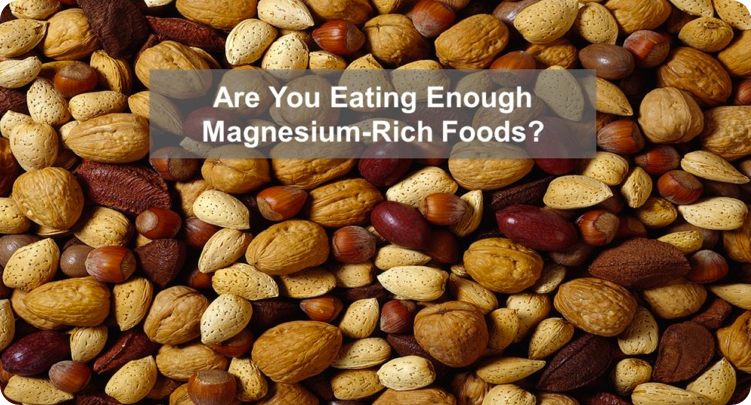Why is Magnesuim So Important?
- Apr 26, 2022, 9:11 AM

Magnesium is important in your daily diet because your body requires it for so many different functions. We can quickly become deficient in this important mineral if we are not consuming enough high magnesium foods. Magnesium plays a role in over 300 enzymatic reactions within the body, including the metabolism of food. Magnesium is also required in fat synthesis, protein synthesis, and the transmission of nerve impulses. Magnesium is necessary for muscle relaxation and energy production. In the adult body, bones contain approximately 60% of all magnesium, and most of the remainder is contained in muscles and soft tissues.
At least half of the US population is not getting enough magnesium in their daily diet and inadequate magnesium intake is associated with increased diabetes risk. The typical American diet is low in vegetables and whole grains, resulting in reduced magnesium intake. The Recommended Daily Allowance (RDA) for magnesium is 310-320 mg/day for adult women and 400-420 mg/day for adult men. Recent research (The Nurses’ Health Study (NHS), NHS2 and Health Professionals’ Follow-Up Study), reveals that higher magnesium intake is associated with lower risk of type 2 diabetes, particularly in diets with poor carbohydrate quality.

- A deficiency of magnesium may be involved in many conditions, including:
-
- Asthma
- Cardiovascular disease
- Type 2 Diabetes
- Fatigue
- Fibromyalgia
- High blood pressure
- Hypoglycemia
- Insulin Resistance
- Migraines
- Osteoporosis
- Premenstrual syndrome
- Stroke
- Magnesium can help you with:
-
- Relieving constipation
- Calming nerves and anxiety
- Relaxing muscles
- Easing insomnia
- Improving insulin sensitivity
- Bone health
- Increasing energy
- Relieving migraine headaches
Where will you find Magnesium? Green leafy vegetables, unrefined whole grains, and nuts and seeds are richest in magnesium. Meats, yogurt and milk also contain a moderate amount. Refined foods, like carbohydrates, are poor sources of magnesium. There are various websites including The U.S. Department of Agriculture’s, which list the nutrient content of many foods and provide comprehensive lists of foods containing magnesium arranged by nutrient content and by food name.
Should you supplement with Magnesium? Magnesium supplements are available, but it is best to obtain any vitamin or mineral through food, because nutrients work better when synergistically combined with other nutrients. Check with your doctor before taking any supplements.
